CHARGE!
CHARGE!
Historys Greatest
Military Speeches
Edited by Congressman Steve Israel
NAVAL INSTITUTE PRESS
Annapolis, Maryland
The latest edition of this work has been brought to publication with the generous assistance of Marguerite and Gerry Lenfest.
Naval Institute Press
291 Wood Road
Annapolis, MD 21402
2007 by Steve Israel
All rights reserved. No part of this book may be reproduced or utilized in any form or by any means, electronic or mechanical, including photocopying and recording, or by any information storage and retrieval system, without permission in writing from the publisher.
ISBN 978-1-61251-422-2 (eBook)
The Library of Congress has cataloged the hardcover edition as follows:
Charge! : historys greatest military speeches / edited by Steve Israel.
p. cm.
Includes bibliographical references and index.
1. Speeches, addresses, etc. 2. Military history. I. Israel, Steve.
PN6122.C43 2007
808.859358--dc22
2007016457
 Print editions meet the requirements of ANSI/NISO z39.48-1992 (Permanence of Paper).
Print editions meet the requirements of ANSI/NISO z39.48-1992 (Permanence of Paper).
14 13 12 11 10 09 08 07 9 8 7 6 5 4 3 2
First printing
To Marlene, Carly, and Elana,
who have marched with me.
The clearer vision which time and study bring
have shown that he used words almost as effectively as the sword,
and that throughout his career the address ably supported
the military maneuver.
IDA TARBELL, Napolons Addresses, 1897
CONTENTS
I am indebted to many people for their support and assistance with this project. First and foremost, my family. My wife, Judge Marlene Budd, and my daughters, Carly and Elana, have offered tolerance for yet another of my projects (in addition to serving in the U.S. Congress, working for my constituents, campaigning for reelection, writing constantly, and amassing a growing pile of books to be read in my study).
Brett Kunsch was an extraordinary research assistant. In addition to fact checking, writing, and editing, he made substantive creative contributions to the book that improved my early drafts.
Tom Cutler, of the Naval Institute Press, was a patient and dependable advocate of the project.
I also appreciate the military officials and historians who have guided my work. Congressman Ike Skelton (D-MO), the chairman of the House Armed Services Committee, fueled my interest in military history and encouraged me to pursue the issue of professional military education on the committee.
I am also fortunate to have a staff that is so deeply committed to my constituents that I was able to focus my personal time on Charge! without worrying about a diminution in the quality of service we provide. Jack Pratt is not only my chief of staff but also a friend. He reliably weathers my daily proclamations: I have an idea for a project.... And he leads a staff that patiently endures my many interests as well: Karen Agostisi, Alex Bacham, Swati Bindra, Nick Crocco, Lisa Deutsch, Silvana Diaz, Meghan Dubyak, Holli Dunayer, Beth Gabellini, Tracie Holmberg, Nicole Haber, Matt Jennings, Zach Kranitz, Caryn Lewi, Heather McHugh, Major Chris Meyers, Erin Murphy, Mike Ryan, Tricia Russell, Debra Solomon, Harris Wiener, and others who were kind enough to work for me before moving on to bigger and better things.
There are two other groups I must thank: the generations of men and women who have marched to protect us, and the people of New Yorks Second Congressional District. They have given me a seat in Congress and a seat on the House Armed Services Committee and therefore a front seat to history, which helps me contribute to shaping the future.
The pen is mightier than the sword.
EDWARD BULWER-LYTTON, 1839
O N A SULLEN DAY IN EARLY APRIL, the former commandant of the U.S. Army War College led me up a gravel path to what he called sacred ground.
Low clouds hung over Gettysburg; a chilly wind swept across the battlefield, rustling the Wheatfield and the Peach Orchard and blowing against the scarred rocks of Devils Den. The battlefield was almost desolate; it would be a few weeks and at least twenty degrees warmer before tourists swarmed the famous landmarks, signed up for ghost tours, and lined up to buy coffee mugs emblazoned with the images of famous generals.
All of that seemed distant as we climbed a lonely path. Finally, we arrived at the wooded summit of a hill, and Maj. Gen. Robert Scales, USA (Ret.), planted his feet near a tree stump. Not very far away, 142 years before, his great-grandfather, Brig. Gen. Alfred Scales, stood with a Confederate brigade. On the other side of the battlefield. On the other side of history.
Welcome to Little Round Top, Robert Scales said, and then repeated, This is sacred ground.
Here on this hill, on July 2, 1863, Col. Joshua Chamberlain and his 20th Maine were ordered to hold this ground at all costs. The order was crucial, complying with it almost impossible. If Chamberlain lost the hill, Robert E. Lees army could push across Union lines and threaten Washington, D.C., less than ninety miles away. Gettysburg would be lost, and perhaps even the war. Yet, the 15th and 47th Alabama Infantry Regiments outnumbered the 20th Maine and were positioned to attack them frontally and on their left flank. After repelling several assaults, Chamberlains men had nearly exhausted their ammunition and seemed incapable of surviving another attack. Chamberlain then decided to mount what many must have believed would be a final, suicidal defense of the hill: a bayonet charge into apparently overwhelming firepower.
Bayonet! Chamberlain ordered, and he could hear the click of steel. Moments later, the 20th Maine rushed down the hill, executing a difficult maneuver that swept away the enemy, saved Little Round Top, and helped win Gettysburg for the Army of the Potomac.
Chamberlain on Little Round Top has become a hallowed moment in military history and the subject of passionate debate as well. Even today historians argue whether Chamberlain was really out of ammunition; whether he actually gave the order to advance or whether his men had an intuitive grasp of what had to be done, and when to do it; even whether the Confederates had commenced a retreat before or after the 20th Maine swept upon them.
The debate is academic. More important to me is this: How did that small band of brothers find the fortitude to charge against what they assumed to be superior force? What propelled them into the enemy, bayonets versus musketry?
What happened on Little Round Top has echoed throughout history: on other hills and on mountains, on beaches and deserts, in cities and plains. They are not simply stories; they demonstrate the importance of words in the story. History demonstratesfrom the ancient spear to our new array of weapons, the Future Combat Systemsthat weapons systems are lacking unless those who wield them know why they fight. Unless they fight with their hearts as well as their hands.
Next page



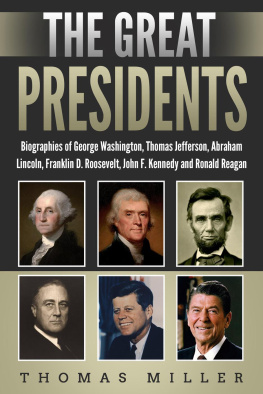
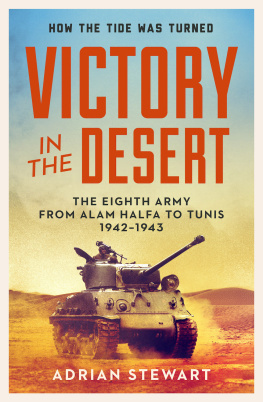

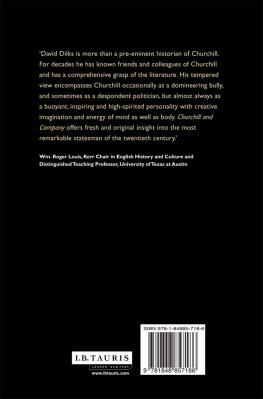
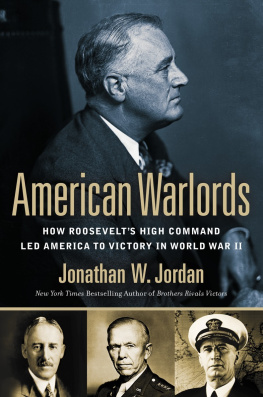
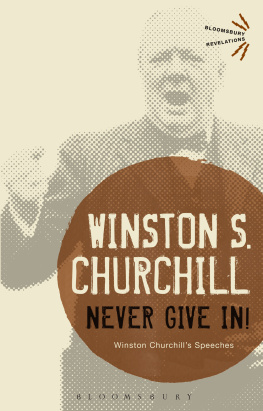
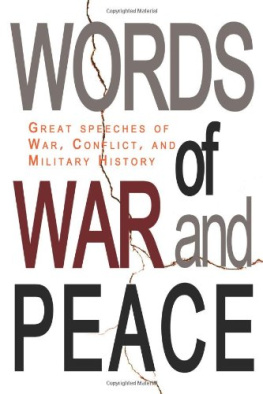
 Print editions meet the requirements of ANSI/NISO z39.48-1992 (Permanence of Paper).
Print editions meet the requirements of ANSI/NISO z39.48-1992 (Permanence of Paper).